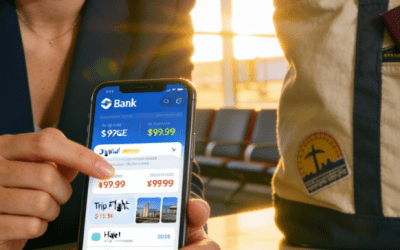Local SEO is essential for online travel agencies looking to stand out in an increasingly competitive market. While these agencies mainly operate in the digital space, optimizing their presence for local searches can make a significant difference. As consumers seek more personalized solutions close to their location, travel agencies that implement local SEO strategies can capture the attention of potential clients within their area of influence. In this article, we will dive into how local SEO can benefit online travel agencies and focus on key aspects to improve visibility in search engines.
What is Local SEO and Why is it Important?
Local SEO refers to a set of practices aimed at improving a business’s visibility in search results when users search for products or services with a geographically localized intent. For online travel agencies, this means appearing in search results when users look for terms like “travel agency near me” or “best travel agency in Valencia.”
Although many online travel agencies operate in global markets, consumers often prefer to work with companies that understand local needs, and this is where local SEO comes into play. By optimizing key elements such as Google My Business, geolocated keywords, and customer reviews, a travel agency can stand out from the competition and attract clients seeking a more personalized and localized experience.
Benefits of Local SEO for Online Travel Agencies
Local SEO can provide numerous benefits to online travel agencies, some of which can be crucial for their growth:
- Increased Visibility on Google and Google Maps: Travel agencies that optimize their Google My Business profile are more likely to appear in local search results and on maps, which is crucial for attracting users in their area.
- Attraction of High-Intent Customers: Local searches like “travel agency in Malaga” or “Costa Rica travel packages” are made by users who are closer to making a purchase decision, increasing the likelihood of conversion.
- Improved Online Reputation: Reviews and testimonials from customers can significantly enhance a travel agency’s reputation, which in turn influences its ranking and builds trust with users.
- Competitive Advantage: Agencies that implement local SEO strategies have an edge over those that don’t, especially in saturated markets, as they can stand out as a reliable, nearby option for users.
Key Strategies to Improve Local SEO
- Optimizing Google My Business (GMB)
Google My Business (GMB) profile optimization is the foundation of any local SEO strategy, as it provides a platform where travel agencies can interact directly with users. To make the most of this tool, it’s essential to complete all available information, such as the agency’s name, address, phone number, and business hours. Agencies should also upload attractive and updated images that showcase their services and recommended destinations.
Keeping the profile active is crucial. Regularly posting updates on promotions, new travel packages, or local events can increase visibility and keep clients informed. It’s also important to encourage customer reviews, responding to ratings in a friendly and proactive manner. Positive reviews not only enhance the agency’s reputation but also influence its search rankings.

2. Using Local Keywords
Using local keywords is crucial for ranking in searches by users interested in travel services in a specific location. Agencies should include geolocated terms in their titles, descriptions, tags, and blog content. For example, using phrases like “tourist packages in Madrid” or “customized travel from Barcelona” can make a travel agency more visible to users who specifically search for those terms.
It’s important to integrate these keywords naturally into website content. Ensuring that each page has a specific focus on the location will help improve local relevance in search engine results.
3. Creating Locally Relevant Content
Creating content that resonates with the interests and needs of residents in a region is one of the best ways to improve local SEO. Publishing guides, articles, and blogs about nearby destinations, local activities, or festivals can attract traffic from people interested in traveling within their own region or to nearby destinations.
For example, a travel agency in Barcelona could create content titled “The Best Weekend Getaways from Barcelona” or “Travel Guide for Exploring Costa Brava.” This type of content not only attracts potential tourists but also signals to search engines that the agency is an expert in local travel.
4. Building Local Links
Quality backlinks are an important factor in any SEO strategy, and for local SEO, this extends to obtaining links from relevant websites in the region. Building relationships with local bloggers, media outlets, business directories, and other local organizations can be an effective way to increase domain authority and improve rankings.
Participating in community projects, sponsoring local events, or collaborating with local influencers can also help generate valuable links that enhance the agency’s visibility in local search results.
5. Mobile Optimization
Local SEO is closely tied to mobile searches. Most users perform local searches from their smartphones, so having a mobile-optimized website is essential. This includes ensuring that the site is responsive (i.e., adapts well to any screen size) and loads quickly. Google penalizes slow-loading sites, so improving load speed is crucial. Additionally, the design should be intuitive and easy to navigate to ensure a good user experience.
6. Customer Reviews and Testimonials
Reviews are a fundamental part of local SEO. Not only do they help improve visibility, but they also directly influence consumer decisions. Travel agencies should encourage satisfied customers to leave ratings on Google and other review platforms.
It’s important to respond to these reviews, both positive and negative, in a professional and friendly manner, showing that the agency cares about customer satisfaction. Furthermore, highlighting the most positive testimonials on the website and social media can further boost future clients’ trust.
7. Social Media Presence and Geotagging
Social media is a powerful tool for boosting local SEO, as it allows agencies to interact directly with their local community. Using location-based hashtags and tagging posts with the appropriate geolocation can help local users find content more easily. Participating in local conversations and promoting content about events or regional news also reinforces the agency’s relevance in its geographical area.

Conclusion
Local SEO is an indispensable tool for online travel agencies looking to stand out in a highly competitive market. By optimizing elements like Google My Business, using local keywords, creating relevant content, and actively managing reviews, an agency can significantly improve its visibility and attract more high-intent customers. The key to success lies in being consistent and strategic, ensuring that every action aligns with the goal of attracting local clients and improving rankings in search results.
Implementing these strategies with dedication can help any online travel agency stand out in its local market and capitalize on the business opportunities offered by local SEO.






